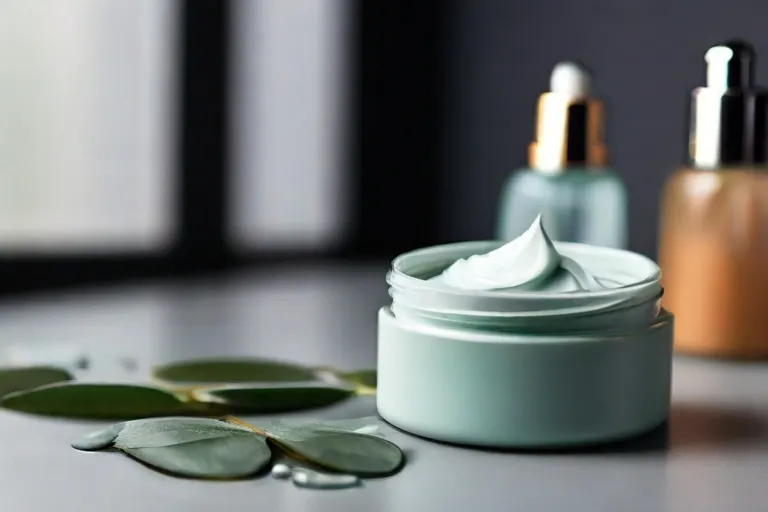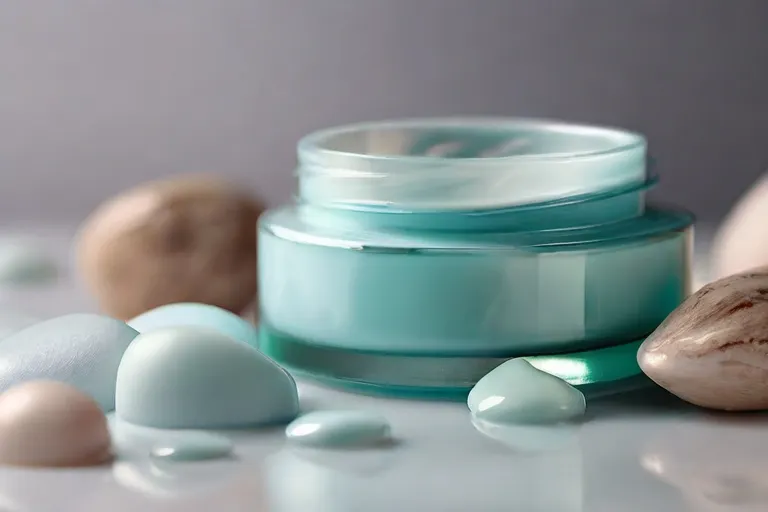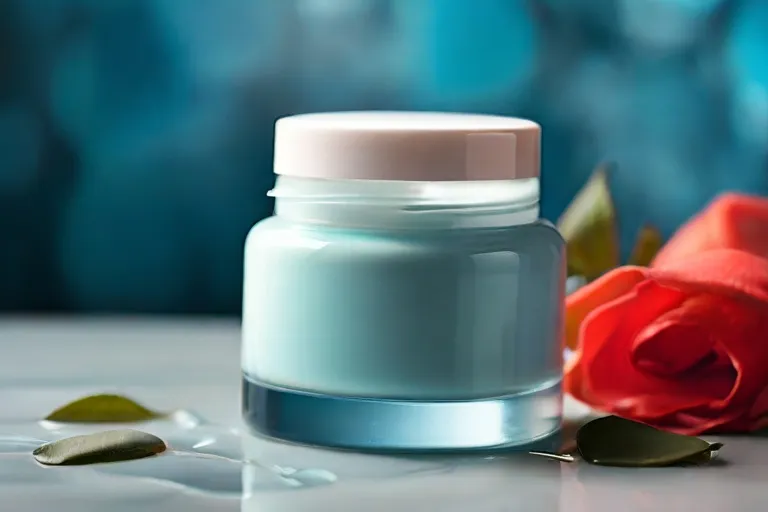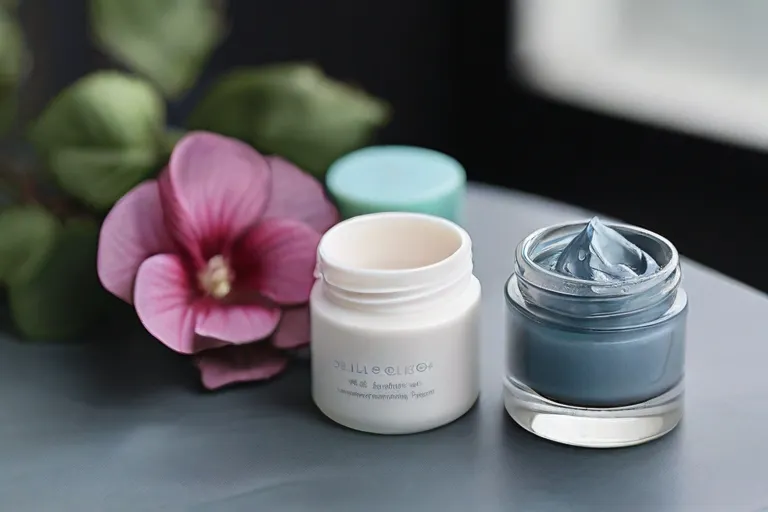Do Silicones Belong in Your Skincare Routine? Understanding the Debate and Making Informed Choices for Healthy Skin

Do Silicones Belong in Your Skincare Routine? Understanding the Debate and Making Informed Choices for Healthy Skin
Silicones: you may have heard conflicting opinions about these controversial ingredients in skincare products. Some hail them as miracle workers for creating a smooth finish and locking in moisture, while others raise concerns about their potential harmful effects on the skin. So, do silicones really belong in your skincare routine? By understanding the debate and making informed choices based on your skin's needs, you can navigate the world of skincare more confidently and keep your skin healthy and glowing.
Key Takeaways:
- Silicones can be safe and beneficial: Not all silicones are harmful and they can provide benefits like smooth texture, hydration, and protection for the skin.
- Debate over pore-clogging properties: Some believe silicones can clog pores and lead to breakouts, while others argue that they create a barrier which can actually protect the skin.
- Individual skin response: Skin type and sensitivity vary among individuals, so it is important to pay attention to how your skin reacts to products containing silicones.
- Look for high-quality formulations: If you choose to use products with silicones, opt for reputable brands with high-quality ingredients to minimize any potential negative effects on your skin.
- Consult with a dermatologist: If you have concerns about using silicones in your skincare routine, it is best to seek advice from a dermatologist who can provide personalized recommendations based on your skin's needs.
Understanding Silicones
What Are Silicones?
To understand the debate around silicones in skincare, it's important to know what they are. Silicones are a group of synthetic compounds derived from silica, a naturally occurring mineral. In skincare products, silicones are used for their lightweight, smooth, and silky feel on the skin. They help to create a barrier that locks in moisture, keeping the skin hydrated and protected from environmental factors.
The Various Types of Silicones in Skincare
For skincare formulations, there are various types of silicones used, each with unique properties and functions. In skincare, commonly used silicones include dimethicone, cyclomethicone, dimethiconol, phenyl trimethicone, and dimethicone copolyol. These silicones are often found in moisturizers, primers, foundations, and sunscreens. The use of silicones in skincare products has been a topic of debate among skincare enthusiasts, with some praising their smoothing and hydrating effects, while others have concerns about their potential to clog pores or cause skin irritation. The debate around silicones in skincare is ongoing, and it's vital to make informed choices based on your skin's unique needs.
The Benefits of Silicones in Skincare
Smooth Application and Texture Enhancement
Enhancement: Any skincare enthusiast knows the importance of a product that glides effortlessly onto the skin. This is where silicones shine. Silicones in skincare formulations contribute to a smooth application, allowing products to spread easily and evenly across the skin. The lightweight, silky texture that silicones provide can help create a luxurious feeling during application, promoting a sensorial experience that many users enjoy.
Barrier Formation and Moisture Retention
An effective barrier on the skin is crucial for maintaining hydration and protecting against environmental stressors. Silicones play a key role in forming a breathable barrier on the skin's surface. This barrier not only helps to prevent moisture loss by locking in hydration but also shields the skin from pollutants and other external aggressors. By creating a protective shield, silicones support the skin's natural barrier function, enhancing its overall health and resilience.
The Controversy Surrounding Silicones
Environmental Concerns
Concerns surrounding the use of silicones in skincare products stem from their impact on the environment. Silicones are non-biodegradable, meaning they can accumulate in the environment over time. There are worries about their potential contribution to water pollution and concerns about their persistence in the environment. Some argue that the production and disposal of silicones may have negative effects on ecosystems and wildlife.
Potential Skin Issues
Potential skin issues associated with silicones have sparked a heated debate among skincare enthusiasts. Some claim that silicones can clog pores and lead to breakouts, while others believe they can create a barrier on the skin that traps dirt and bacteria. With conflicting information available, it can be challenging to navigate the science and recommendations on whether silicones are safe for your skin.

How to Identify Silicones in Skincare Products
Reading and Understanding Ingredient Labels
Many skincare products contain silicones, which can be beneficial in creating smooth textures and providing a protective barrier on the skin. To identify silicones in your skincare products, it's important to read and understand ingredient labels. Look for words ending in "-cone," "-conol," "-siloxane," or "-silane" as these are common indicators of silicone ingredients.
Common Silicone Ingredients to Look For
Reading ingredient labels can help you pinpoint common silicone ingredients in skincare products. Some key silicones to look for include dimethicone, cyclomethicone, and phenyl trimethicone. These silicones are often used in moisturizers, primers, and foundations for their smoothing and hydrating properties.
Dimethicone is a widely used silicone that can help create a barrier on the skin to lock in moisture. Cyclomethicone is known for its lightweight feel and ability to help other ingredients spread easily on the skin. Phenyl trimethicone is a versatile silicone that can add shine and smoothness to hair and skin products.
Silicones and Different Skin Types
Keep in mind that the use of silicones in skincare products can have varying effects on different skin types. It's important to understand how silicones may interact with your particular skin concerns to make informed choices for your skincare routine.
Considerations for Sensitive Skin
For those with sensitive skin, it's important to pay attention to how silicones may affect your skin. Some individuals with sensitive skin may find that certain types of silicones can cause irritation or exacerbate existing skin conditions. It's recommended to perform a patch test before incorporating silicone-based products into your routine and to opt for products with fewer or safer silicones if you have sensitive skin.
Silicones for Oily, Dry, and Combination Skin
Sensitive to adding silicones. It is noted that silicones can be beneficial for oily skin types as they create a barrier that helps to lock in moisture without clogging pores, but they may not provide sufficient hydration for very dry skin. For combination skin, it's all about finding the right balance and selecting products that contain silicones suitable for both oily and dry areas of the face.
Any skincare decisions should be guided by your specific skin concerns and preferences. If you have any doubts about the use of silicones based on your skin type, consulting with a dermatologist can provide personalized advice and recommendations.

Alternatives to Silicones in Skincare
After considering the debate on whether silicones should be part of your skincare routine, you may be interested in exploring alternative options. One popular category of alternatives includes natural and plant-based ingredients that offer similar benefits without the drawbacks associated with silicones.
Natural and Plant-Based Options
Silicones are widely used in skincare products for their smoothing and texture-enhancing properties. However, if you prefer to avoid silicones in your routine, you can look for natural and plant-based alternatives such as oils (like jojoba, rosehip, or argan oil), shea butter, plant extracts, and waxes. These ingredients can provide hydration, nourishment, and protection for the skin without the potential concerns that come with silicones.
How to Transition to Silicone-Free Products
For those looking to make the switch to silicone-free skincare products, it's crucial to gradually introduce new products into your routine. Begin by replacing one silicone-based product at a time with a silicone-free alternative. This will allow your skin to adjust to the new ingredients and help you monitor any changes in your skin's behavior or appearance.
Skincare is a personal journey, and finding the right products for your skin can take time. Experimenting with different formulations and ingredients will help you determine what works best for your skin type and concerns. Remember to patience and be conscious of how your skin reacts to new products as you transition to a silicone-free routine for healthier, happier skin.
Making Informed Choices
Once again, the debate over using silicones in skincare products continues to spark conversations among beauty enthusiasts. To gain a deeper understanding of this topic, it's necessary to educate ourselves on the facts and myths surrounding silicones in beauty products. For a detailed analysis, you can refer to Silicone in Beauty Products: Facts vs Myths.
Evaluating Personal Skincare Goals
Personal skincare goals play a crucial role in determining whether silicones have a place in your routine. Some individuals prioritize achieving a flawless complexion and smoother texture, where silicones can provide immediate results. On the other hand, others may focus on natural ingredients and avoiding potential irritants, leading them to opt for silicone-free alternatives. By understanding your specific skincare needs and desired outcomes, you can make informed choices that align with your goals.
Balancing Skincare Choices with Lifestyle and Ethics
On top of considering the impact on your skin, it's important to strike a balance between skincare choices and your lifestyle and ethics. Factors like sustainability, animal testing policies, and personal values can influence your decision-making process. Some brands prioritize eco-friendly practices and cruelty-free formulations, catering to individuals who value ethical considerations in their skincare routines. By aligning your choices with your lifestyle and beliefs, you can create a skincare routine that not only benefits your skin but also resonates with your values.

Final Thoughts
As you navigate the world of skincare products, it's imperative to consider the use of silicones and their impact on your skin. While the debate on silicones continues among skincare enthusiasts and experts, making informed choices for your skin is key. Remember that what works for one person may not work for another, so understanding your skin's needs and preferences is crucial in creating a skincare routine that suits you.
Summary of Key Points
On one hand, silicones can provide benefits such as smoothing out skin texture, creating a barrier against environmental stressors, and helping with makeup application. On the other hand, some individuals may experience clogged pores, irritation, or sensitivity to silicones in their skincare products.
Empowering Your Skincare Decisions
Points to consider when choosing skincare products with silicones include understanding your skin type, researching product ingredients, and patch testing new products to assess compatibility. By taking the time to educate yourself on the benefits and potential drawbacks of silicones, you can make more informed decisions for your skincare routine.
The key takeaway is to approach skincare with a mindful and informed perspective. Experiment with different products, listen to your skin's feedback, and don't be afraid to adjust your routine as needed. Your skin is unique, so what matters most is finding what works best for you to maintain healthy and glowing skin in the long run.
FAQ
Q: What are silicones and why are they used in skincare products?
A: Silicones are synthetic polymers that are used in skincare products for their ability to create a smooth, silky texture, and to form a protective barrier on the skin. They can help products spread easily and provide a temporary feeling of hydration and softness.
Q: Do silicones clog pores and cause breakouts?
A: Some people may find that certain types of silicones can clog their pores and contribute to breakouts, especially if they have sensitive or acne-prone skin. However, not all silicones are comedogenic, and their effects can vary depending on the individual.
Q: Are silicones safe to use in skincare products?
A: Silicones are generally considered safe for use in skincare products, as they have been extensively tested and approved by regulatory bodies. However, some people may have sensitivities or allergies to certain types of silicones, so it's important to patch test new products.
Q: Do silicones provide any long-term benefits for the skin?
A: Silicones are primarily used in skincare products for their cosmetic benefits, such as smoothing the skin's texture and providing a temporary plumping effect. While they can help improve the appearance of the skin in the short term, they do not offer significant long-term benefits.
Q: How can I make an informed choice about using silicones in my skincare routine?
A: To make an informed choice about using silicones in your skincare routine, you can start by understanding your skin type and concerns, as well as how your skin reacts to different ingredients. Patch testing new products, reading ingredient lists, and consulting with a dermatologist can help you determine whether silicones are suitable for your skin.
